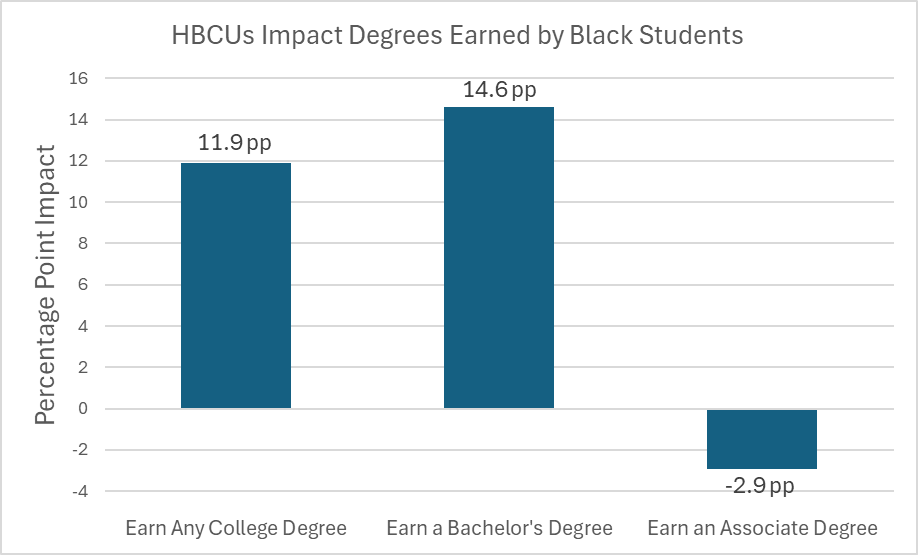Research
HBCU Enrollment Drives Positive Longer-Term Student Outcomes
New research on who applies and enrolls in Historically Black Colleges and Universities (HBCUs) and the impact of HBCU attendance on Black student outcomes reveals important findings supporting the positive role of HBCUs in student success.
New evidence from data on 1.2 million Black students reveals students who enroll in HBCUs are nearly 12 percentage points more likely to earn a college degree than those who do not enroll in an HBCU, a result driven by a nearly 15 percentage point increase in the probability of earning a bachelor’s degree. This result stems from the fact that Black students who enroll in four-year HBCUs often forgo the alternative options of attending two-year college or not enrolling in college at all. Frequently, it is the broad-access HBCUs that have the largest impacts on Black student outcomes.

Note: Sample includes 1.2 million Black high school graduates from the 2004-2010 graduating cohorts.
This research also finds that Black students who enroll in an HBCU are more than twice as likely to major in a STEM field and complete degrees associated with higher earnings. In fact, compared to otherwise similar Black students who also applied to an HBCU but did not enroll in one, Black students who attend an HBCU have 5% higher household income around age 30. The increase in early-career household income from attending an HBCU is even larger—10%—for students who were less likely to otherwise enroll in a four-year college.